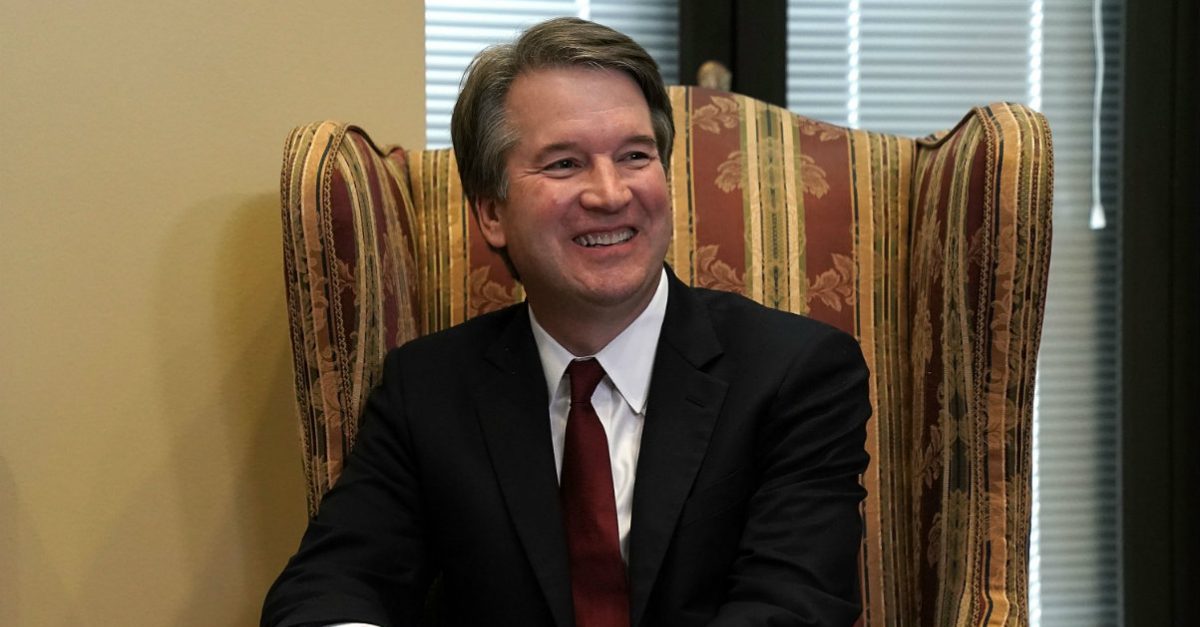
U.S. Supreme Court nominee Brett Kavanaugh suggested years ago that justices might have botched their 8-0 ruling in 1974’s United States v. Nixon by ruling that the president had to obey a subpoena to turn over the Watergate tapes. This could carry major ramifications for Special Counsel Robert Mueller‘s investigation, according to University of Texas School of Law Professor Steve Vladeck.
“But maybe Nixon was wrongly decided — heresy though it is to say so,” Kavanaugh said in a published roundtable discussion in the January-February 1999 issue of the Washington Lawyer, according to the Associated Press. “Nixon took away the power of the president to control information in the executive branch by holding that the courts had power and jurisdiction to order the president to disclose information in response to a subpoena sought by a subordinate executive branch official. That was a huge step with implications to this day that most people do not appreciate sufficiently…Maybe the tension of the time led to an erroneous decision.”
Kavanaugh, a judge for the D.C. federal appellate court, turned over the 1999 article about this roundtable discussion to the Senate Judiciary committee as part of his confirmation process to replace retiring Justice Anthony Kennedy.
Elsewhere in the discussion, Kavanaugh said, “Should U.S. v. Nixon be overruled on the ground that the case was a nonjusticiable intrabranch dispute? Maybe so.” In other words, he said the court probably shouldn’t have gotten involved in the first place.
“This is a big deal,” Vladeck wrote about Kavanaugh’s 1999 statements. “If Judge Kavanaugh thinks Nixon is wrongly decided (on justiciability), he’s effectively arguing that a quasi-independent prosecutor in the executive branch can’t sue to enforce a subpoena against a sitting President. That would surely cover Mueller, too…”
Vladeck’s concern is that should Kavanaugh be confirmed to the Supreme Court, and a case regarding Mueller’s investigation reach the Court, the new justice would be inclined to side with the president.
The Kavanaugh discussion was published several months after the release of the “Starr Report.” Kavanaugh played a leading role in the investigation conducted by Independent Counsel Ken Starr, which found that President Bill Clinton committed acts that could be the basis for impeachment.
Nonetheless, Philip Lacovara, who argued the Nixon case against the president and moderated the 1999 discussion, said that Kavanaugh’s statements about the case were consistent with the man’s other beliefs in a strong presidency.
“That was Brett staking out what has been his basic jurisprudential approach since law school,” he told the AP on Saturday. Nonetheless, the 1999 statements were “surprising,” even back then, he said.
In response, Kavanaugh supporters pointed toward a 2016 law review arrticle in which he spoke of Nixon as one of “the great moments in American judicial history.”
“Whether it was Marbury, or Youngstown, or Brown, or Nixon, some of the greatest moments in American judicial history have been when judges stood up to the other branches, were not cowed, and enforced the law,” he wrote. “That takes backbone, or what some call judicial engagement.”
[Image via Alex Wong/Getty Images]